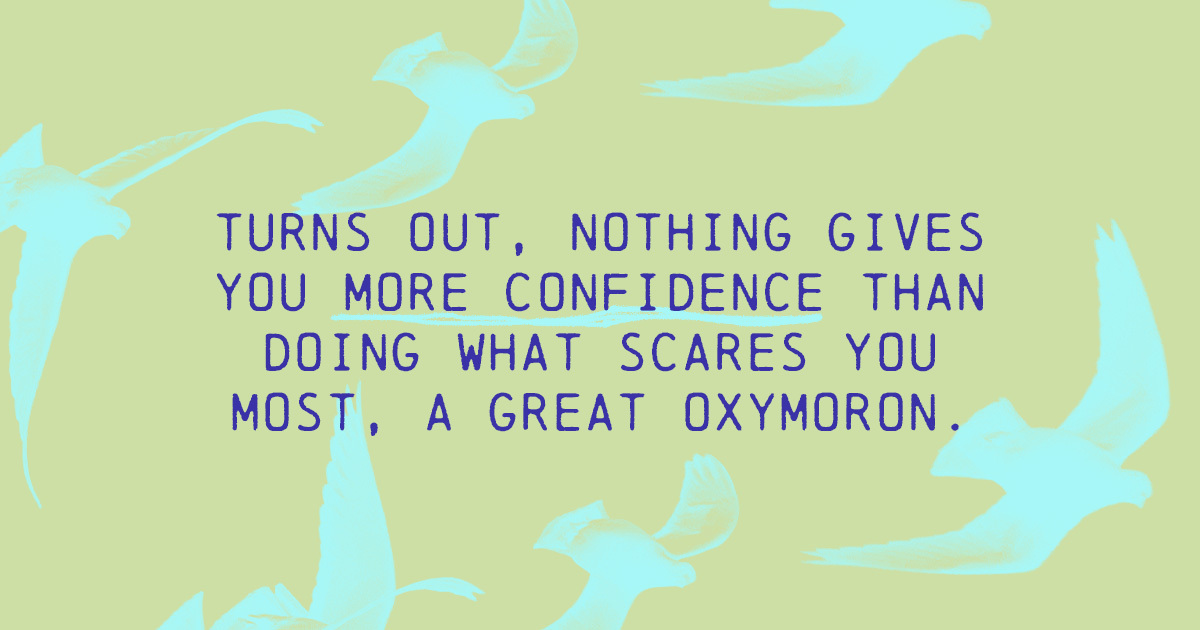When I first started therapy, like everything in my life, I had hoped it would be a quick fix. Someone else would tell me what was wrong with me, we’d talk it through, and I’d be on my merry way. Over three years down the track and four therapists later, and I can surprisingly, happily say that that is not the case. I’ve heard it repeated many times, but it is so true—just like breaking a bone requires time to heal, so does mental trauma.
PTSD changed the physiology of my brain and those changes need time and practice to heal and grow from.
I now know I go to therapy to learn, to better understand myself, and to gain skills that are more effective when I am triggered or in distress. It’s a process that takes time and entirely works.
One thing I had always avoided was group therapy, as it was hard enough to say the words out loud to one person in a private room, let alone to a group of people. So when my therapist suggested trying group Dialectical Behaviour Therapy (DBT), I balked. I had to remind myself that I’d gone through three years of therapy and four different therapists and that I had nothing to lose from seeing if this approach could help me.
I’m so glad I took the chance, as DBT was the game-changer I never saw coming. It connected me with people who had all experienced different levels of trauma in their lives but were all affected by it, nonetheless, similar to me. Group DBT put me firmly in the driver’s seat with not only regulating my emotions but with effectively feeling safe in my body as well.
This type of therapy is called “dialectical” because it involves the interaction of two conflicting ideas, that improving your symptoms involves both acceptance and change. One can be struggling and healing at the same time, just as one can be both happy and sad simultaneously. A specific skill in DBT that clicked for me was “opposite action,” which is essentially doing the exact opposite of what feels like safety and running headfirst into what terrifies you. Turns out, nothing gives you more confidence than doing what scares you most, a great oxymoron.

At around the same time I was assaulted, I had taken up mountain biking, which coincidentally has been the biggest confidence builder for me physically and mentally. When I started I progressed quickly on the bike and everyone saw this confident woman who came out of nowhere to hit the biggest jumps and most technical features. What they didn’t see was the constant battle happening in my head along the way.
Before every jump, the voice would come out declaring things like, “You’re not capable of that,” “You’ll crash and everyone will know you failed again,” “You’re so stupid, you can’t possibly trust yourself to be able to hit that skill,” or “Stop putting yourself in situations where you’ll hurt yourself, you should have learned better from that experience by now.” Even when I hit the skills and landed the jumps, there was never a sense of achievement for what I’d done, only a sense of relief that I hadn’t given the voice more fuel to become louder the next time. But by pushing back against those thoughts with the bike as the catalyst, doing the opposite of what seemed impossible, it became empowering and healing.
The doubtful thoughts were terrifying but by taking another chance and hitting the jumps, I was doing the exact opposite of what they were trying to convince me. “You can’t trust yourself” was slowly shut off and, “Shit, I can trust my mind and my body to do these things” emerged in its wake.
The other day, as I was musing to myself before dropping into a big jump line, it finally clicked. This time I wasn’t doing the jump because I was trying to prove to myself that I could trust my brain. I finally had the capacity to not even overthink the hurdle. Instead, I could hear a Tui singing next to me. I had dropped in from this point a million times before and never fully appreciated how peaceful the birdsong was.
When your mind is stuck in survival for so long it convinces you there’s no other way, the pain becomes familiar and tunnel vision consumes. It’s hard to see in the dark to the point it’s even hard to remember that there’s anything other than the darkness. But there is. There always is. Somedays, the Tuis will be hiding, sheltering from the rain and no birdsong is heard. But they’re always there, waiting to burst out of nowhere again with a beautiful song. In those moments, you wonder how you missed it all along. Same as the Tuis, hope is always there—even in the struggle.
You are not weak for wanting or needing support. If you’re seeking professional help, we encourage you to use TWLOHA’s FIND HELP Tool. If you reside outside of the US, please browse our growing International Resources database. You can also text TWLOHA to 741741 to be connected for free, 24/7 to a trained Crisis Text Line counselor. If it’s encouragement or a listening ear that you need, email our team at [email protected].